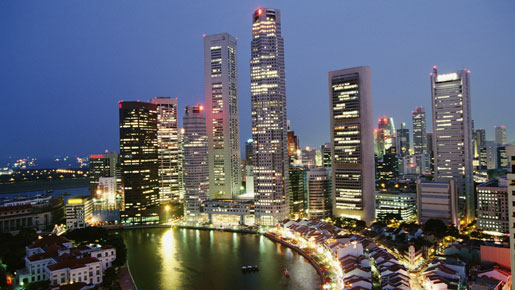
Rise of the big savers…
There’s nothing quite like a financial meltdown to change national attitudes towards foreign investment. Just 18 months ago, the sovereign wealth funds were regarded with suspicion by countries like the United States and with outright hostility by Germany, France and Italy.
But now that immense sums of western capital have been vaporised in the banking crisis, everybody’s courting the so-called SWFs. And in particular those of Singapore, China and other big-saving Asian nations. The OECD now formally welcomes SWF investment. UK prime minister Gordon Brown has told the funds that Britain is a “natural place” for their money. And even Italy will grudgingly allow them to buy up to five percent of a domestic company.
Although we’re long accustomed to the MidEast SWFs, it’s almost as if many nations have only just discovered the Asian versions. And yet some of them have been quietly building those funds for decades.
In 1974, the first kid off the block was Singapore’s Temasek Holdings. Practically shunned in the western world for years, it now has hefty stakes in Standard Chartered, Merrill Lynch and Pakistan’s NIB bank. It’s also in talks with General Electric and Hapag-Lloyd, and has ambitions to expand into Latin America and China. Temasek has a reputed $134bn war chest.
In 1981, Singapore’s Lee Kuan Yew still didn’t know what to do with the nation’s massive savings so he established another fund — the Government of Singapore Trust. It now has shareholdings in industrials in China and financials such as UBS as well as owning property in central London. Current size: about $90bn, mainly for distressed assets.
Not to be outdone, in 1983 oil-rich Brunei started building its own investment agency. Current assets include a portfolio of luxury hotels including London’s Dorchester. Total value: $30bn.
In 1993 Malaysia’s Khazanah Nasional, a government-run fund, started a nest-egg intended primarily for domestic investment. However with about $25.7bn unspent in the kitty, it has opened an office in Beijing and is looking further afield.
In 1997 China Safe Investments was established to invest the nation’s vast storehouse of greenbacks. Today it has stakes in Royal Dutch Shell, resource giant Rio Tinto, Barclays bank and supermarket Tesco among other global giants. Ten years later the Chinese government launched a second fund to recycle its dollar reserves.
Other Asian SWFs have blossomed recently, including those of South Korea which has invested $800m in Merrill Lynch, Thailand and Vietnam. Even little, oil-rich East Timor has a fund that is looking for assets other than the gilts it was originally mandated to buy.
And the latest off the block? Kuala Lumpur’s sultanate of Terengganu has stockpiled a substantial fund. It’s another oil-rich entity and it’s going shopping.

